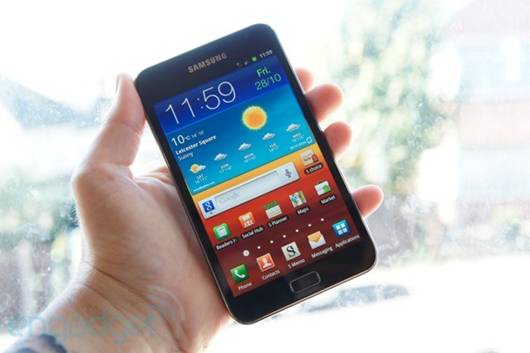Our predictions for future tech (Part 1)
Hoverboards, a race of robots
that rise up and take over the world, and excellent broadband provision in UK. These are the ridiculously far-fetched concepts Matt Egan rejected in picking out 10
things we’ll see over the next 200 issues…
Given the exponential pace of
technological change over the past 16 years or so, it’s virtually impossible to
accurately predict what life will be like in another 200 issues from now, in
2028. But that hasn’t stopped us trying. So in the great tradition of Tomorrow
World we’ve donned out thinking caps, spread some jam on a Compact Disc,
and highlighted what we think are 10 trends and developments likely to shape
the way we use tech in that time.
Some will happen soon, others may take a
few years, but we guess that all of these 10 changes will occur in the next 16
years and eight months. Why not play along at home, and bury this copy of We
in a time capsule in the garden, not to be dug up before August 2028 ?
Every surface will be a
display

Microsoft has already show us a glimpse
of this with its much-vaunted Surface technology, now seen primarily in shops
and showrooms, but intended as a forerunner of the way we’ll interact with our
computers, in the future table-tops will become touchscreen computer, like
PacMan machines for the 21st century, wirelessly linked to a central
computer that will pull in data from the cloud. The TV will be banished to the
cellar as standard windows and mirrors morph from doing day job to being touch
screen digital displays, adept at showing emails, movies, stock prices and live
TV. Satnav date will appear on the inside of your windscreen, the kids will
able to watch movies on car windows, and taxi drivers will display localised
ads to offset the price of your journey. Even humble household objects such as
mugs, plant pots and pans will display contextual information, ranging from the
temperature of the contents to how much water your poor old plant needs.
Plausibility rating 4 stars
Smartphones will fit in your
wallet

Ever wondered why a 10in tablet cost the
same or less than a 7in device? In part it’s because making something smaller
requires in turn tinier components, which are much harder to produce. Shrinking
down already small devices is tough: a tiny phone still requires a power
source, a processor and storage. And anyway, below a certain size, smaller
isn’t always better. You need a fairly large screen, for instance, to be able
to comfortably interact with the information displayed on it, that’s why Dell
and Samsung are betting the family farm on 5in tablet/smartphone hybrids. The
holy Grail is a mobile device with a decent size screen that you can fold up
and slip into your wallet. Foldable displays are possible today, but the issue
is getting the other gubbins that make up a device to fit into a virtually 2D
object. But it will happen, and as mobile payments become an increasingly
important part of the worlds of on-and offline commerce, slipping your phone
out of your wallet to pay a bill will become the norm.
Plausibility rating 3 stars
Data will be in the cloud,
and you’ll access it from the nearest device to hand
We’ve explored on page 108 how much
cheaper storage has become over the past 16 years. But as information and
entertainment grows in definition and complexity, and as we all get more
demanding and wish for more flexibility in our lives, storing files, movies,
music, photos and books on discs and disks will become increasingly old hat.
For more than just a safe, remote backup, pushing and pulling data to and from
the cloud is set to become the most convenient way of enjoying access to
everything, everywhere. It’ll be a monumental security nightmare, but if we’ve
learned anything over the past 200 months it’s that convenience always trumps
security concerns. It’s not even that far fetched. From webmail to social
networks to online photo-sharing and music streaming, most of us already throw
a ton on information into the cloud.
Plausibility rating 4 stars
You’ll be able to transfer
data and payment by touching devices

In the weird-and-whacky world of the HP
TouchPad, this has already happened. HP’s Touch-to-Share technology was
supposed to be the killer app for HP’s putative iPad rival, as a means by which
you could transfer files and folders simply by touching the TouchPad to a
compatible device. The trouble, and this was very much the trouble with the
TouchPad and WebOS per se, was that there weren’t many compatible devices.
Still, the technology is out there, and if the “oohs” and “aahs” from those who
saw it were anything to go by it has popularity potential. Throw in the
convenience of touching your smartphone to a scanner to make payments, and the
future of touch transfer becomes exciting. The key will be making a universal
touch-transfer protocol that all manufacturers can get behind, so the public
can feel comfortable with it. Getting a standard everyone can agree to is,
traditionally, a torturously slow business. But as the success of USB can Wi-Fi
prove, it’s eminently doable, where the will exists.
Plausibility rating 4 stars
Social will get scary
The days of a genius piece of malware
holding the connected world to ransom will draw to a close. Cybercriminals look
for the lowest-hanging fruit, and blasting through the combined defences of
ISP, windows and internet security suite is no longer the percentage play. The
weakest link in any digital security setup is you, dear reader. And you are
never more likely to make a miss-step than when you are on a social network
site, publicly chatting with your friends’. Get ready for increasingly
sophisticated scams, aimed at parting social networkers with their cash at the
point they feel least vulnerable. Poisoned links, fake friends, the hacked
accounts of genuine acquaintances…all will be used to target your account to
get your details. Information you’ve publicly placed on one site will be
automatically combined with details from another to spoof your ID and guess your
passwords. And as more cash in transacted over social-media sites; you’ll have
more to lose.
Plausibility rating 5 stars
…and so will mobile
As mobile devices and connectivity
improve, the amount of time and money we spend online on our mobiles will
increase. And as more cash and data is shared across the mobile space, expect
crooks to get interested. The biggest bar to malware on mobiles right now is
the sheer variety of platforms a cybercriminal would have to cover in order to
make a profit. But as the market matures, expect platform-agnostic web-based
worms to appear. Piggy-backing on the work of legitimate developers, aimed at
making it easier to share sites and apps across a variety of devices, malware
writers will find ways of finagling their net nasties on to every phone and
tablet out there. And as we increasingly use our handhelds as payment device,
data store and encryption key, the smartphone will be the most valuable target
for criminals. Right now antivirus makers are trying to sell you mobile
products that you probably don’t need, but don’t let their crying wolf fool
you. The risk is coming.
Plausibility rating 5 stars